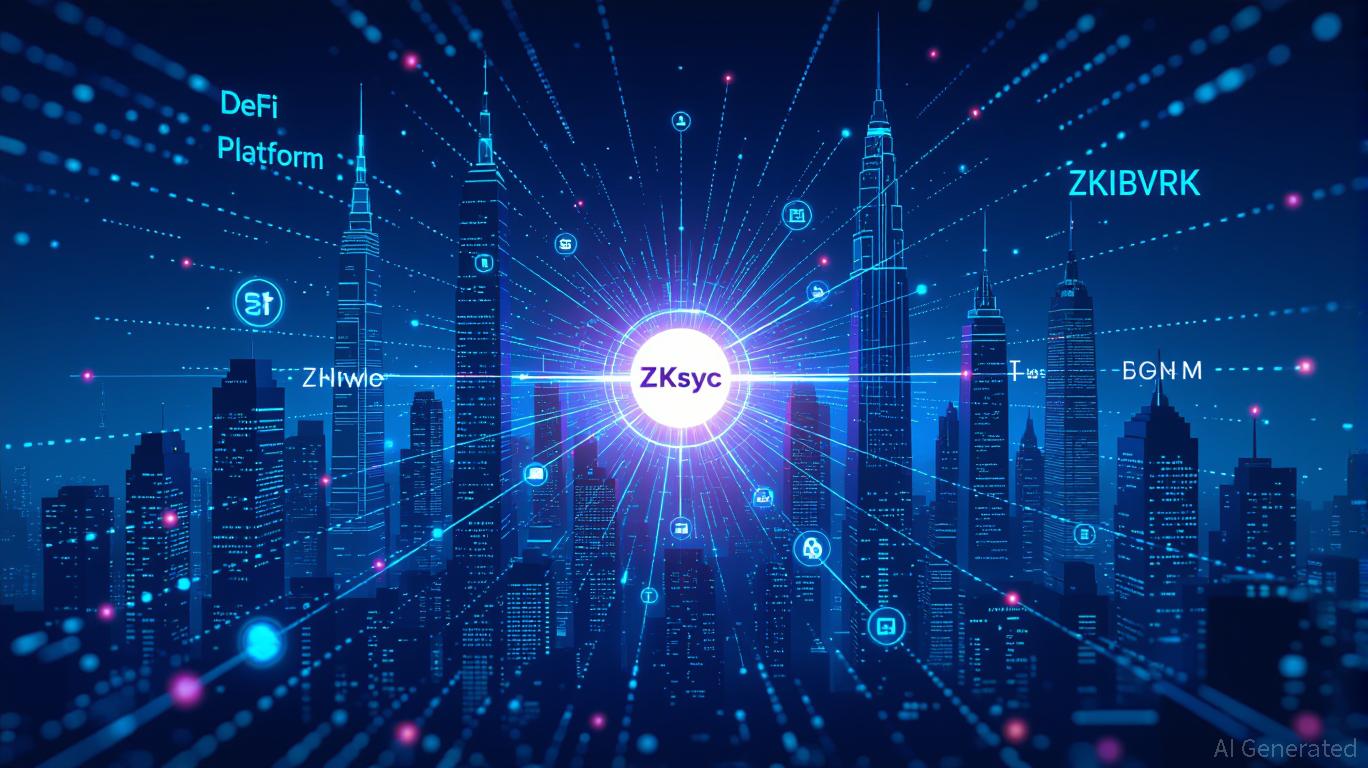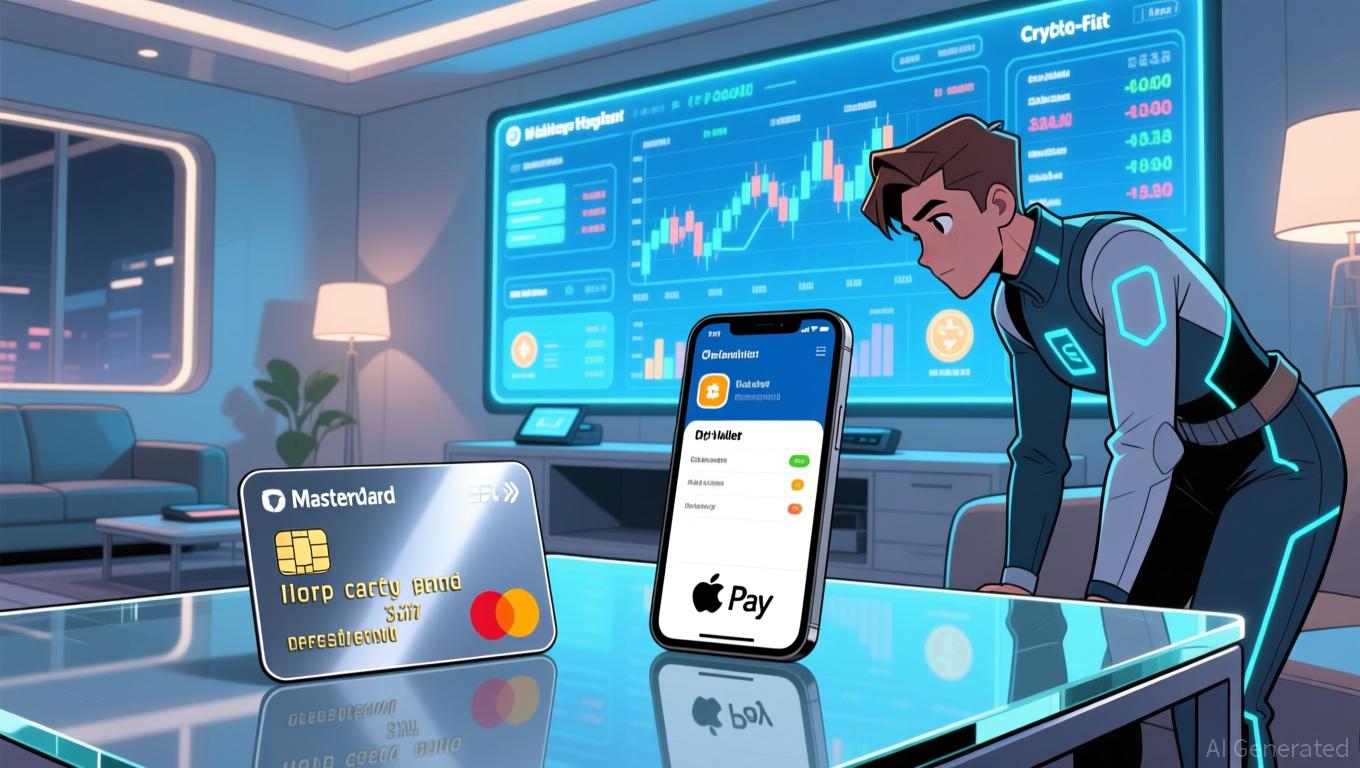ZK Atlas Enhancement: Transforming DeFi with Zero-Knowledge Powered Scalability
- ZKsync's October 2025 Atlas Upgrade introduces modular Layer 2/3 infrastructure, achieving 15,000 TPS and slashing proving costs via RISC-V-based Airbender prover. - The upgrade enables zero-fee DeFi transactions and real-time asset tokenization, with ZK token surging 50% and $19M in institutional funding for integration. - By unlocking RWA tokenization and addressing trust gaps through ZKP protocols, ZK infrastructure is redefining DeFi scalability while navigating regulatory and integration challenges.
The
ZK
Atlas Upgrade: Transforming DeFi Scalability
The ZKsync Atlas Upgrade, revealed on October 8, 2025, marks a major evolution in blockchain design. By deploying a modular Layer 2/3 framework, it supports more than 15,000 transactions per second (TPS)—a dramatic improvement over Ethereum’s 30 TPS ceiling, according to the
For DeFi, this translates to zero transaction fees and immediate settlements, addressing two major barriers to widespread use. Picture a decentralized exchange (DEX) where trades are completed in milliseconds without gas fee battles, or a lending service that updates collateral instantly. The
Institutional Embrace and Market Reaction: ZK Gets the Green Light
The industry has taken notice of this shift. The ZK token, native to the ZKsync network, jumped 50% after the upgrade, reflecting strong institutional interest, according to the
The ZK Atlas Upgrade also paves the way for tokenizing real-world assets (RWA) by enabling

Obstacles and Future Prospects
No major innovation comes without challenges. Regulatory uncertainty and the difficulty of integrating ZK with existing systems are still significant obstacles. Yet, ZKsync’s modular approach and support for Blockchain-as-a-Service (BaaS) solutions help reduce these risks, as explained in the
Additionally, the ZKP (Zero-Knowledge Proof) protocol’s verified knowledge economy—where users bid on and confirm factual information—complements ZK infrastructure by closing trust gaps in decentralized systems, as noted in the
Conclusion: Essential for the Next Wave of Finance
The ZK Atlas Upgrade is more than just a technical enhancement—it’s a roadmap for the future of DeFi. By resolving scalability issues without sacrificing security, ZK technology is quickly establishing itself as the foundation of Web3. For investors, this means preparing for a world where blockchain is not just experimental, but a core part of global finance.
With the rapid ascent of the ZK token and growing institutional alliances, the market is already anticipating a future dominated by ZK-driven platforms. Ignoring this development isn’t just missing a trend—it’s overlooking the next $100 billion opportunity.
Disclaimer: The content of this article solely reflects the author's opinion and does not represent the platform in any capacity. This article is not intended to serve as a reference for making investment decisions.
You may also like
A former doctor has introduced Robyn, a compassionate AI partner

Cardano News Update: EMCD’s Crypto Card Connects Blockchain with Everyday Purchases
- EMCD launched a free crypto payment card enabling USDT spending via Mastercard , Apple Pay, and Google Pay, bridging digital assets to daily transactions. - Competitors like Exodus and Jour Cards introduced similar tools, targeting unbanked populations and expanding crypto utility for iTunes, gift cards, and global remittances. - Stablecoin transaction volumes hit $46 trillion in 2025, with 19% of crypto owners projected to use digital assets for payments by 2026, per eMarketer. - Traditional banks like

Lighter Secures $68 Million to Drive Institutional DeFi Expansion Despite Market Hesitancy
- Lighter secured $68M in a new round led by Founders Fund and Ribbit Capital, valuing it at $1.5B to boost DeFi trading infrastructure. - The funding aligns with a broader crypto VC surge, including Ripple's $500M and Lava's $200M, highlighting institutional interest in blockchain finance. - CEO Vladimir Novakovski emphasized scaling infrastructure with both equity and token subscriptions to enhance institutional-grade trading solutions. - Despite market caution, DeFi protocols like Lighter attract invest
JPMorgan and DBS Establish Unified Cross-Chain Protocol for Institutional Transactions
- JPMorgan and DBS develop blockchain framework for cross-chain tokenized deposit transfers, aiming to set institutional payment standards. - The framework links DBS Token Services with JPMorgan’s Kinexys, enabling 24/7 real-time settlements across public and permissioned blockchains. - It addresses cross-border transaction demands, reducing fragmentation as global banks adopt tokenization. - Overcoming interoperability challenges could redefine institutional liquidity access and market reach.
